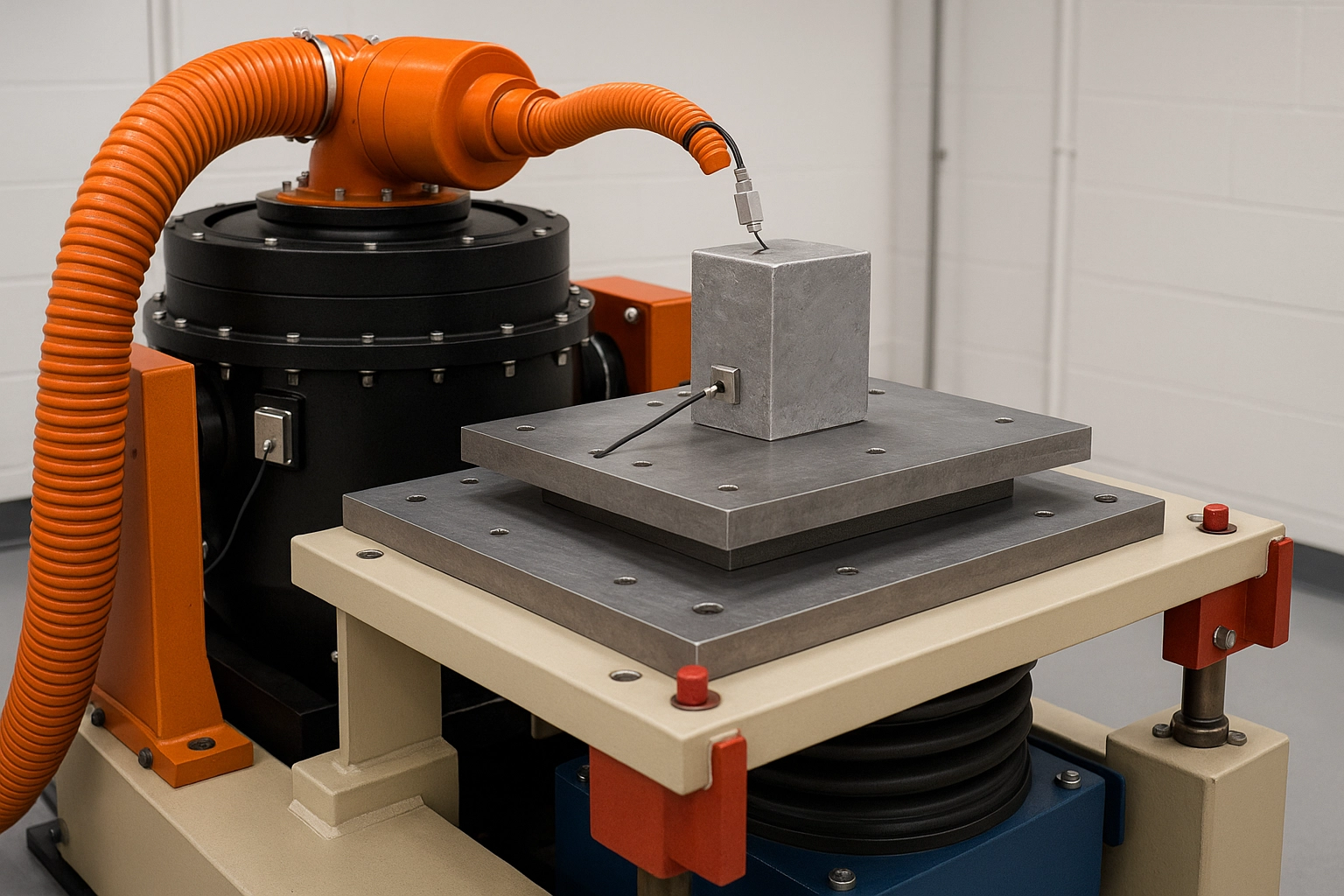UNE 21300 Mechanical Shock Test for Automotive Devices
The UNE 21300 mechanical shock test is a crucial procedure in the automotive industry aimed at ensuring that devices and components can withstand the harsh environmental conditions they may encounter during vehicle operation. This standard, part of the broader European Norm (UNE) system, is designed to simulate real-world shocks faced by automotive parts and systems. The UNE 21300 test evaluates how well a device maintains its functionality under sudden impacts that could occur due to road irregularities or accidents.
The test procedure involves subjecting the specimen to controlled shock pulses using specialized equipment capable of delivering high-velocity impacts. These pulses are typically characterized by their peak acceleration, duration, and frequency content, which are carefully selected based on the expected operating conditions of the automotive device under test (ADT). The goal is to replicate the stress that a real ADT might experience in various driving scenarios.
One of the primary challenges in this testing process lies in accurately reproducing the shock environment. This requires precise control over parameters such as pulse shape, rise time, and fall time. Advanced vibration excitation systems are employed for generating these controlled shocks. The specimen is placed on a shaker platform where it interacts with an impulse hammer to deliver the mechanical stress.
While the UNE 21300 standard provides clear guidelines, it’s essential that testing facilities adhere strictly to these protocols to ensure accurate and reliable results. Compliance officers and R&D engineers must be aware of the nuances involved in specimen preparation and equipment calibration. Proper alignment between the test setup and the ADT is critical for achieving meaningful data.
The importance of this test cannot be overstated, especially considering the potential safety implications of automotive failures due to shock-induced damage. By subjecting components to controlled shocks, manufacturers can identify weak points early in the development cycle, allowing them to refine designs before mass production begins.
Furthermore, compliance with UNE 21300 helps organizations meet regulatory requirements and gain competitive advantage by ensuring their products are robust enough for global markets. This standard is particularly important as it aligns closely with international guidelines such as ISO standards, enhancing interoperability between different manufacturers and regions.
Benefits
- Enhanced Product Reliability: Ensures that devices can withstand real-world shocks, reducing the risk of failure during use.
- Informed Design Decisions: Identifies areas in need of improvement early in development cycles, leading to better-designed products.
- Maintains Quality Standards: By adhering strictly to UNE 21300 protocols, manufacturers can ensure consistent quality across their product lines.
- Compliance with Regulations: Helps meet essential regulatory requirements for international markets, broadening potential customer bases.
The UNE 21300 mechanical shock test is an indispensable tool in the automotive industry. It not only contributes to enhancing product reliability but also plays a vital role in shaping informed design decisions and maintaining high-quality standards across all stages of production.
Why Choose This Test
The UNE 21300 mechanical shock test is chosen for several compelling reasons. Firstly, it provides an accurate simulation of real-world shock environments that automotive devices encounter during their lifecycle. By subjecting specimens to controlled shock pulses, manufacturers can identify potential weaknesses early in the development process, allowing them to address these issues before mass production begins.
Secondly, compliance with this standard is crucial for meeting stringent regulatory requirements across various markets. Automotive products must adhere to a myriad of international standards and regulations designed to ensure safety and quality. UNE 21300 plays an integral part in achieving this by providing clear guidelines on how to conduct mechanical shock tests.
Another key reason for choosing the UNE 21300 test is its ability to enhance product reliability. The test simulates the stress that devices might face under adverse conditions, ensuring they remain functional even after experiencing significant shocks. This not only improves customer satisfaction but also enhances brand reputation by delivering products known for their durability and performance.
Lastly, UNE 21300 supports informed design decisions through rigorous testing protocols. Engineers can use the insights gained from these tests to refine designs continuously, leading to more robust and efficient products. This iterative approach ensures that each iteration brings closer to meeting all necessary specifications and exceeding customer expectations.
Competitive Advantage and Market Impact
- Compliance with International Standards: Adhering strictly to UNE 21300 ensures compliance with international standards, thus broadening market access.
- Enhanced Product Reliability: Demonstrating the ability to withstand mechanical shocks effectively boosts customer confidence and satisfaction levels.
- Informed Design Decisions: Continuous improvement based on testing results keeps products ahead of competitors in terms of innovation and quality.
- Better Customer Relationships: Providing reliable, high-quality products fosters long-term relationships with customers, encouraging repeat business and positive word-of-mouth recommendations.
The impact of UNE 21300 on the automotive industry is profound. By ensuring that devices meet stringent mechanical shock requirements, organizations can differentiate themselves in competitive markets. This differentiation translates into stronger customer loyalty and increased market share, ultimately contributing to sustained growth and profitability.
Moreover, adherence to this standard enhances brand reputation by establishing a culture of quality and reliability. Consumers increasingly value products that not only perform well but also stand the test of time. UNE 21300 helps manufacturers deliver just that, setting them apart from competitors who may not offer similar levels of assurance.





